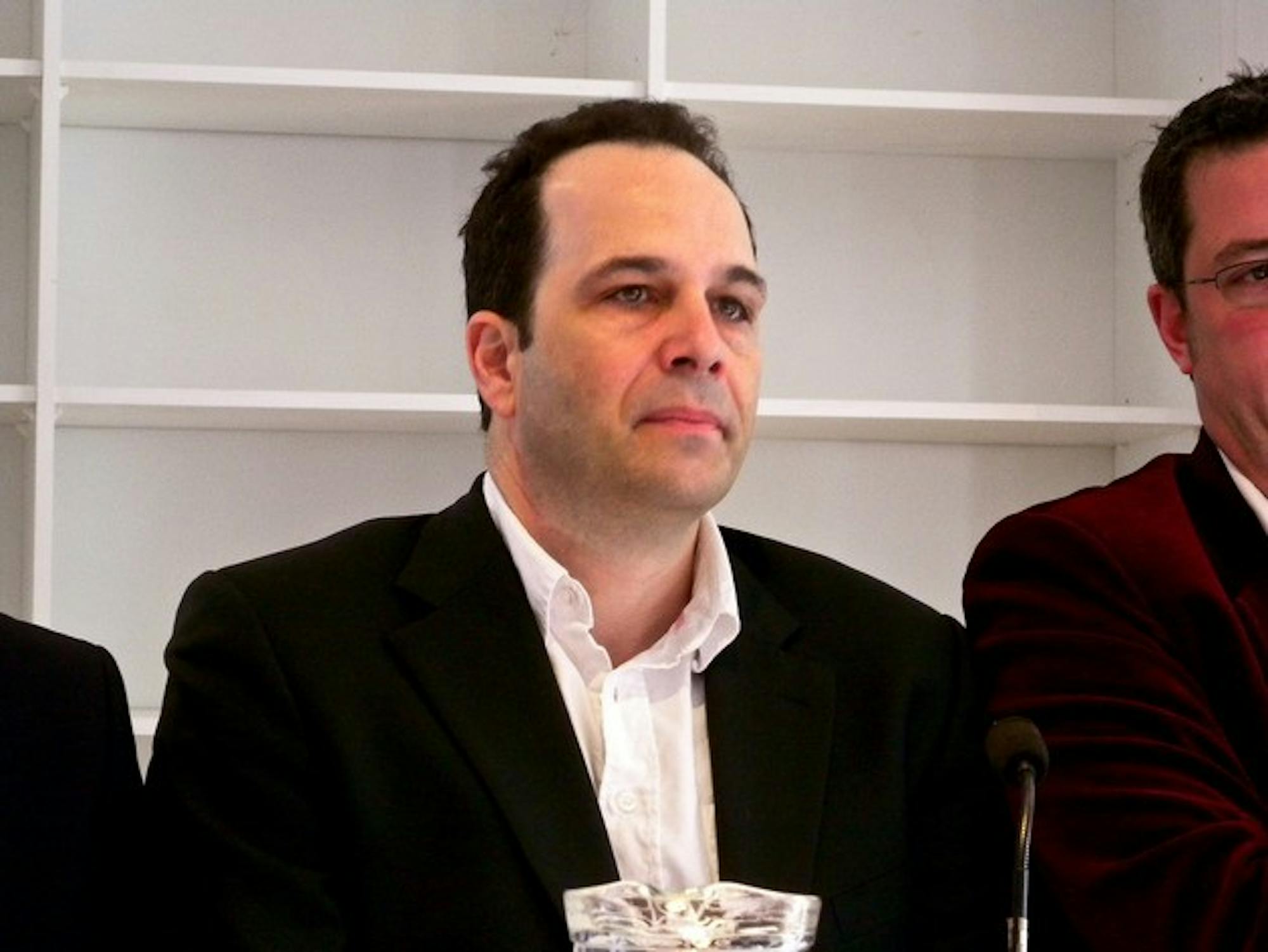Gourevitch's "ethical intensity," courage and eloquence made him stand out to the Montgomery Steering Committee, Stamelman said. Gourevitch's reporting on the aftermath of the conflict in Rwanda differentiates him from other war correspondents who have visited Dartmouth as fellows. His pieces are longer and more thoroughly researched, according to Stamelman.
"He wants to listen to how people tell their stories in the aftermath," Stamelman said. "It enables him to let the survivors and perpetrators live with the events for a while."
The Montgomery Fellow program is designed to inspire and educate undergraduates, Stamelman said.
Fellows often have broad expertise that touches various academic fields, and Stamelman said the fellows visit as many classes as possible during their time at the College.
Gourevitch visited the government department's Comparative Ethnic Politics course on Monday and will visit Lemurs, Monkeys and Apes, an anthropology course, on Thursday.
Gourevitch, whose 1998 book has won numerous awards, describes himself primarily as a writer. Although he has conducted extensive research on the Rwandan genocide and many other topics, Gourevitch said he does not consider himself a specialist in any area.
The focus of his writing has primarily been crime, including genocide, double murder and political corruption, Gourevitch said. He said he is attracted to stories where "ideals smack up against political realities."
"To some extent, I've written about crime because often villains help us to think about our own moral framework and choices," he said, describing villains as frequently unapologetic.
Gourevitch explained his career path as a series of "stumbling into things," stemming from his love of books. He decided to cover the Rwandan genocide because he had experience reporting on refugee issues and Holocaust memorials, he said.
"The Holocaust museums said never again,' but it was happening again," Gourevitch said.
Seeking to understand the complexities of the genocide, Gourevitch said he was especially interested in the aftermath of the crisis.
He went to Rwanda for the first time to write an article for The New Yorker, but he "over-reported the story" and decided to turn his attention to writing a book about the genocide.
Aftermath stories give victims and perpetrators time to reflect and remember their experiences, according to Gourevitch.
"The facts don't change, but where we put the accent shifts over time," he said, adding that stories start to take their form after people have had time to reflect on their experiences.
Gourevitch said that the purpose of his book is not necessarily to call readers to humanitarian action, but to "get the story straight." He criticized the idea that a small amount of information can turn previously uninformed people into good activists. Just because a person is well-intentioned does not mean that his or her action will be the right one, he said, emphasizing the complex nature of many humanitarian crises.
"My motive is to tell you how the world is in its complexities, not to say, Don't do anything, but hang on, hang on,'" Gourevitch said. "I'm skeptical of the idea of calling people to action all by itself."
Gourevitch is currently working on a second book about Rwanda which will be more focused on the stabilization of the country in the genocide's aftermath, he said.
Montogmery Endowment intern Soumya Gupta '14 said she appreciated Gourevitch's speciality in an African country, which she said is not well-represented in classes at Dartmouth.
As an American author who writes about other nations, Gourevitch serves to "bridge the gap" for American students, she said.
Gupta said she found the student lunch with Gourevitch on July 10 particularly inspiring. The informal atmosphere allowed students to learn more than if they were at a traditional lecture, she said.
Stamelman agreed that the student lunch was especially interesting, noting that Dartmouth students ask questions that "draw a fellow out."
He told the story of one student who asked a previous fellow how he knew when he had failed, which forced the fellow to "open up."
Gourevitch said he appreciates all of the direct contact he has had with students and faculty and said he particularly enjoyed a lunch with faculty members during which they discussed humanitarian aid.
Gupta is a former member of The Dartmouth Staff.




